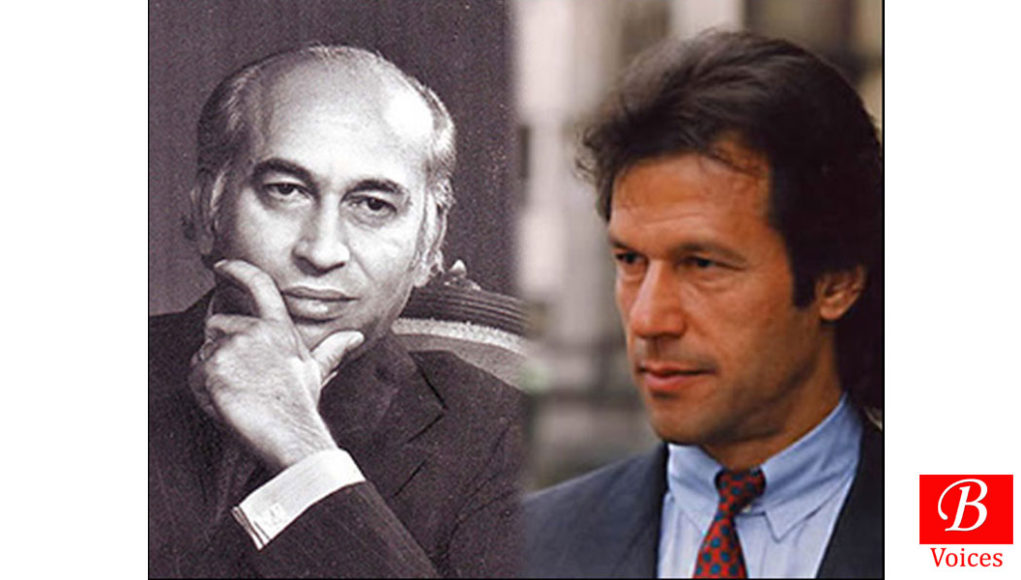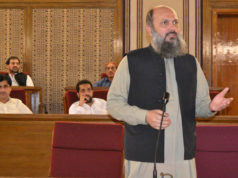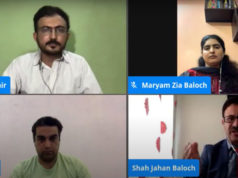Tahira Khan
Apparently, the South Asian region is entitled with leader based politics where general masses including civil society is obsessed with personality cults despite backing state building. The leadership phenomenon is frequently linked with heroism and some divine support. It seems illogical but we have abundance of such cases where people showed emotional attachment with various political figures.
Mahatma Gandhi, Jinnah and Nehru are considered to be the leaders of sub-continent region. They invested significant efforts during the British departure and Pakistan movement. Currently, the status of democracies in both India and Pakistan is indebted to the political norms being inculcated at that time, particularly after the Khilafat movement.
Generally, the political science literature considers authority to be of three types under the pretext of Max Weber’s essay which got published in 1958. These kinds include traditional, legal-rational and the charismatic one. As far as Pakistan is considered, general masses usually prefer charismatic authority where a political figure is seen to be super-natural character. Such conditions, most frequently, results in parochial political structure or authoritarianism. Thus, there is dire need of deep political socialization in favour of institution building, democracy and rule of law.
Max Weber defines Charisma to be unstable and irrational. He defines the concept in the following words:
“A certain quality of an individual personality, by virtue of which he is set apart from ordinary men and treated as endowed with super-natural, super-human, or at least exceptional powers or qualities. These are such as are not accessible to the ordinary person but are regarded as of divine origin or as exemplary, and on the basis of them the individual concerned is treated as a leader.”
The charismatic figure deems dynamic, inspirational and non-rational but emerges during crisis, and brings revolutionary changes where the whole political system is changed or a part of it.
If we apply this theory to the tenure of Zulfiqar Ali Bhutto (ZAB), the former PM of Pakistan, a charisma could easily be witnessed. ZAB was, undoubtedly, an extremely ambitious politician who carved out the country during critical situation of 1971. Separation of East Pakistan didn’t only divided into two halves geographically but also made the ideological existence of state questionable. Furthermore, economy was shattered and army, state’s most organized and reputable institution, was demoralized.
It was because of ZAB who didn’t managed crisis but also brought some revolutionary agendas. The very first achievement lies in the conclusion of 1973 constitution which established the norm of parliamentary democracy. His reforms, though not comprehensive at all, ended inequality to some extent. In addition, secularization of state policies, nationalization of industries, dynamic foreign relations and many more things are included in the list which says that ZAB didn’t went with traditional lines and developed his own will in accordance with special power or maybe knowledge.
This was the very first stage of Weber’s charismatic theory which ZAB envisaged enthusiastically. Now comes the second stage which is called as ‘legitimization.’
Max Weber reiterates this as under;
“Power legitimized on the basis of a leader’s exceptional personal qualities or the demonstration of extra-ordinary insight and accomplishment, which inspire loyalty and obedience from followers.”
This step requires recognition of the intended leader on the behalf of his/her followers along with the establishment of relationship between a leader and his followers. The leader’s every policy is widely accepted even if it is illegal or detrimental in the context. The personal power to command rationalizes everything and ZAB was successful in this step too. Despite having high inflation rates (25%) and socialist agenda which is usually considered anti-Islamic, Bhutto got landslide victory in 1977 general election against PNA – an alliance of nine religious parties. Overwhelming public support gave validity to his charisma, finally.
Now comes the last stage which is pronounced as ‘Routinizing the Charisma’.
Its salient features are as under;
“Charismatic authority is succeeded by a bureaucracy controlled by a rationally established authority or by a combination of traditional and bureaucratic authority.”
Here Weber talks about the decline of charisma which in ZAB case occurred because of General Zia-ul-Haq. On 5th July 1977, a military coup overthrown democratically elected PM of Pakistan on charges of Political instability and promised to hold elections within ninety days. (As per requirements of the constitution, elections have to be conducted within ninety days after the dissolution of respective parliament).
People usually compare Imran Khan with various charismatic leaders. Let’s see whether he contained this quality or all such debate is just a bluff.
Imran Khan has both a struggling and democratic devotion. His reforms set a stage for political socialization specifically among the young generation. His ultimate success lies in the disqualification of PM Nawaz Sharif which has been overruled politically by Election Act 2017, unfortunately. Though he is dynamic and inspirational in character but his tenure neither saw crisis not brought some evolutionary changes. He has gone set by step which is purely in the context of democracy and NA-120 is the textbook demonstration of that.
Indeed, disqualification is one of the major back through for his political career along with sit-in politics but he didn’t pass into the second stage of charismatic theory. His few attempts failed bitterly which ultimately overshadowed the entire super-natural clout and put him again in the rigorous democratic path where you are required to be accountable for everything.
His charisma has existed in form of events like that of 1992 world cup, establishment of Shaukat Khanum Memorial Hospital and the exceptional educational journey at Oxford. But, unfortunately, these events could be counted among historical narratives which have little impact in the contemporary politics. If a politician has managed to organize peaceful and affluent rally then it doesn’t mean he/she is going to have triumph in the elections as well. Pakistan has been mired in dynastic politics since long and to defeat such an evil there is long way out to do. And, for this we need democracy and rule of law not charisma.
If we look into the initial years of political instability, martial law/ military rule, constitutional crisis, and the current political chaos, a blame would lie in the realm of centralization of power and dynastic politics. There comes no desire of democratic norms on the behalf of both the politicians and general masses. Politicians are mainly interested in power struggle while commoners/civil society remain silent either behind the cover of religion or individual personalities i.e., charisma. It is not about ZAB or Imran Khan whose charisma should be compared but it’s all about people who have been living in parochial culture since long.
Do we really need charisma instead of institution building? What is all about that leadership phenomena? Are we still waiting for a hero to come and rescue us? If there exits affirmative position for the above mentioned questions then political establishment is not entirely responsible for our miserable social, political and economic conditions, definitely.
Author is a team member of Balochistan Voices and a Student of BS (Hons) Political Science in University of the Punjab, Lahore. She hails from Loralai District. Click here to read previous articles written by the author.
Disclaimer: Views expressed in this article are those of the author and Balochistan Voices not necessarily agrees with them.
Share your comments!








